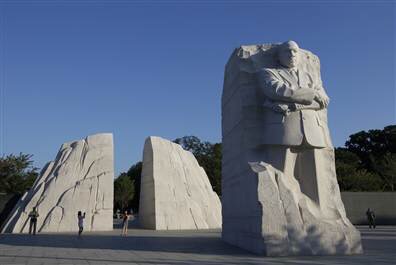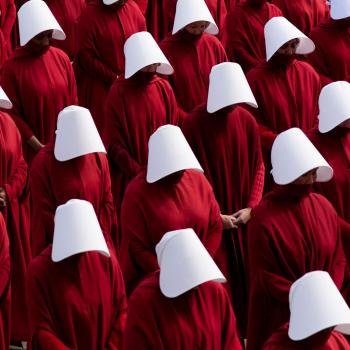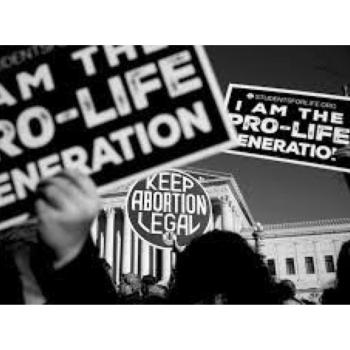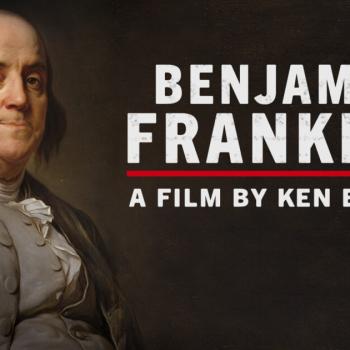Last year at work, we took a survey to find out whether we had ingrained racial biases. The test was created by Harvard University to reveal subconscious preferences seated deeply within us for one skin tone over another. As I expected, my test results revealed I had a preference for white faces. I didn’t want that to be true but, frankly, I wasn’t shocked. After all, I lived most of the first half of my life with very little contact with anything but white faces. (If you wish, you can take the Harvard Project Implicit test at THIS LINK)
This exercise was a prelude to a book study we did together. The book, by Stephen Peters, is called Do You Know Enough About Me to Teach Me? Essentially, the book is about the need to understand that we all come from a different place, culturally, and that in order to truly connect with one another, we need to seek to better understand one another. It seems very appropriate that we began this book study on the week before the Martin Luther King holiday.
Not long after that, I had the opportunity to travel to Washington D.C. with a large group of students. We visited many of the monuments and memorials during our stay. Many, like the Washington, Lincoln, and Jefferson were very familiar to me as I had seen them several times. One highlight, the MLK memorial, stood out to me on this trip.

This was my first time to visit the memorial to Dr. King. It is most notable for the incredibly inspirational King quotes etched into the stone walls that mark its generous perimeters. Then, once you have strolled past these thought provoking quotes, you come to the back of the memorial to see a large block of rock. From the front it is just a large rectangle of stone but as you walk around to the other side you find a carving of MLK, arms crossed, actually looking a little annoyed. At first, I found the positioning of the carving of Martin Luther King to be odd. The fact that it is facing away from the entrance coupled with the posture and pose of the likeness of King seem somewhat unusual, maybe even out of place. In the sculpture, King is standing with arms folded across his chest with a rather stern, fixed gaze staring away across a body of water. As I studied his countenance, it dawned on me that he is directly facing the Jefferson Memorial, plainly visible, perhaps half a mile away, straight across the open water of the tidal basin. The thought occurred to me that it seems Dr. King might be a little disappointed in Jefferson. It was as if he was standing there saying, “Really, TJ? All men are created equal? Yet, even as you wrote those words you held hundreds of people as slaves? And nearly two centuries later I had to give up my life in the struggle to gain equal rights for all? Really, TJ?…really?”
I have no idea if the positioning of the MLK carving was done intentionally to make this point, but whether on purpose or not, it is the point that was driven home to me.
I’ve thought about that day at the King Memorial a lot in the months since. I see the positioning of the King and Jefferson memorials to be a metaphor for our nation.
We are always great on paper.
Sometimes we are great in practice, sometimes we are far from great.
America was founded upon high and noble ideals. Nobody ever said it better than Thomas Jefferson in the Declaration of Independence.
“We hold these truths to be self-evident, that all men are created equal, that they are endowed by their Creator with certain unalienable rights, that among these are life, liberty, and the pursuit of happiness.”
It has taken our nation a mighty long time to even come close to living up to the words on our own birth certificate. Thomas Jefferson certainly never did. The man who said that slavery was an “abominable crime” owned over 600 slaves in his lifetime and freed a grand total of seven of them. We have to remember that those were different times and circumstances but that offers precious little comfort to the millions of slaves who toiled in bondage for their lifetimes and their descendants who struggled against institutionalized discrimination and Jim Crow for a hundred years after the “peculiar institution” was finally abolished. Even that came only after four years of the bloodiest war this country ever endured.
Overt institutionalized racism died a long, hard death in the mid-20th Century with the help Martin Luther King and many other leaders, white, black, men, women, and children, who sacrificed so much in their pursuit of happiness. Of course, Dr. King paid the ultimate price on April 4, 1968 when he was gunned down by James Earl Ray–executed for the crime of attempting to hold America accountable to our own creed.
King died one year after I was born. I like to think we’ve come a long way since then. Things usually look better on the surface. On April 4, 1968, I doubt many Americans would have believed that we, in 2018, have just come through two terms with a black president. Overt institutionalized racism isn’t legal anymore. More people have a legitimate chance to the unalienable rights of life, liberty, and the pursuit of happiness. That’s great progress. However, it doesn’t take a lot of digging around in the news files to find remnants of the past creeping back to the surface. Age-old issues still ooze like an infection just below our surface. When they emerege, we are shocked. We like to believe we are better than that.
At times it feels as if America is a pond full of toxic pollution, frozen over in the winter. From above, the ice provides a lovely screen. We normally skate in comfort on the surface until things heat up. Then the ice becomes thin, cracks form, and we fall through into the ugly, slimy deep.
We are great on paper. We always have been. We have a near-perfect blueprint. When we’ve stuck to it, we’ve been great. When we stray from it, we become just another toxic pond.
On this Martin Luther King memorial holiday, let’s all look anew upon his message.
“We cannot walk alone.
As we walk, we must make the pledge that we shall always march ahead.
We cannot turn back…
…I have a dream that one day, …[we] will live in a nation where [we] will not be judged by the color of [our] skin but by the content or [our] character.
I have a dream today!”
I believe we’ve come a lot closer to seeing that dream come true. But we can do better. We must do better. We cannot walk alone and we cannot turn back.
They say the first and most vital step in overcoming an addiction is admitting you have a problem. I reckon the same applies to our biases and prejudices as well. I know that I have my own biases and racial prejudices. I’d rather not admit it, but it is true. Perhaps someone reading this piece can honestly say they have no bias or prejudice regarding race, religion, sexual orientation, etc., but I strongly doubt it. I need to own my bias and prejudice and so do you. We are all human and we are all flawed. That just means we need each other. We cannot walk alone and we cannot turn back.
As many of us enjoy our day off on Monday, let’s try to take a moment to reflect on Dr. King’s message and renew our efforts to live up to our own creed as Americans.
The title of this article is borrowed from the opening lyric of James Taylor’s wonderful anthem in honor of Dr. Martin Luther King. I can’t think of a better way to close this piece than to share this song with you. I play it often throughout the year, but it needs to be played, for sure, as we celebrate this national holiday. James said it better than I could, so I will let him take us home.











